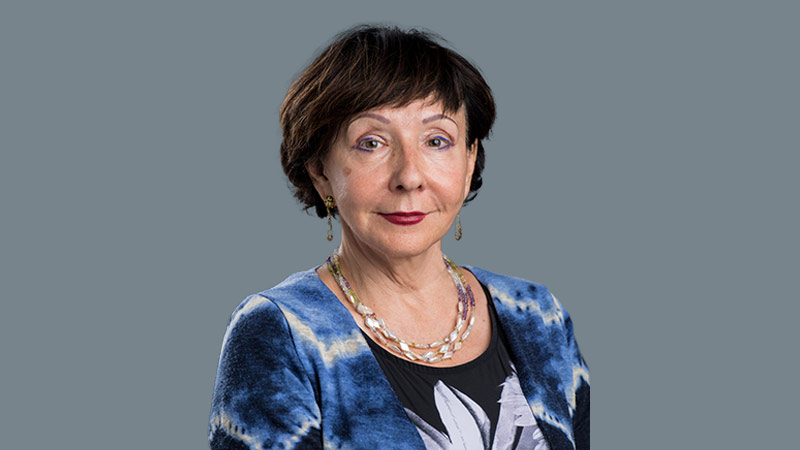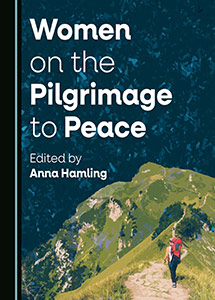Dr. Anna Hamling recognized for her contributions in nonviolence and peace studies
Author: Kayla Cormier
Posted on Sep 20, 2024
Category: Research , UNB Fredericton

Dr. Anna Hamling, faculty member in the department of culture and media studies, is a globally recognized scholar in nonviolence and peace studies.
“Peace is a difficult concept to define. I like the definition of the late Johan Galtung who suggests that peace means avoiding unnecessary insult to life, such as war, poverty, hunger, sexism, exploitation, racism, manipulation and more,” she said.

Earlier this year, Dr. Hamling published her sixth edited volume, Women on the Pilgrimage to Peace, an interdisciplinary, narrative-focused book with chapters detailing intersecting journeys of women from around the globe.
“[These are] personal stories of healing,” she writes in the volume’s introduction, “and collective journeys of empathy, compassion and ‘love in action’ shared by different actors involved in the research and activism of peace.”
The civil resistance and nonviolent strategies explored in the book include protests, marches, sit-ins, boycotts, social media, music, painting and other creative strategies leading to peace.
Shortly after its publication, Dr. Hamling was recognized as a Peace Professor in the United States Institute of Peace (USIP) Peace Professors Periodical.
When she began researching in the areas of nonviolence and peace studies, Dr. Hamling was already immersed in the works of Russian novelist Leo Tolstoy and the religious essays of Miguel de Unamuno. Tolstoy’s Confession is a standout text that began her own pilgrimage into peace studies.
“I would recommend [Confession] to anybody,” she said. “It’s accessible, beautifully written and it leaves a mark on those who read it.”
“We experience so much violence in the world, but we do not talk about how this violence can be converted to nonviolent techniques that can help people deal with small and large societal issues,” she said.
She gives an example from the time of Pinochet’s dictatorship in Chile, where women would weave tapestries with depictions of what was happening politically in Chile at the time.
“They sold these tapestries through the churches, and it was a nonviolent way to protest, but also for them to survive and to feed their families,” Dr. Hamling said.
“We can learn so much from these women.”
Dr. Hamling is developing a new course titled Pilgrimage Across Cultures. It will be offered in the 2025-26 academic year. “We will be going for walks, using relaxation techniques... and getting in touch with our inner selves,” she said.
She has a myriad of upcoming projects, including aiding with the opening of the Canadian Peace Museum in Bancroft, Ont., as well as travelling to Costa Rica this December to take part in the third World March for Peace and Nonviolence. The march is a four-month long event that will travel through five continents.
“There will be a lot of chanting, dancing and sharing stories across five continents,” she said.
Dr. Hamling’s other published volumes include Women, Creativity and Nonviolence (2022), I Have a Dream: From a Culture of Violence to a Culture of Nonviolence (2021), Women and Nonviolence (2021), From Religious Pilgrimage to Secular Tourism (2020) and Contemporary Icons of Nonviolence (2020).
To celebrate the International Day of Peace on Sept. 21, the UNB community (students, faculty and staff) is invited to answer a short survey answering the question “What does Peace Mean to You?” There are cash prizes to be won with support from the UNB Fredericton campus’ dean of arts office.
To connect with Dr. Hamling about her work, research, or upcoming projects, email her at ahamling@unb.ca.
